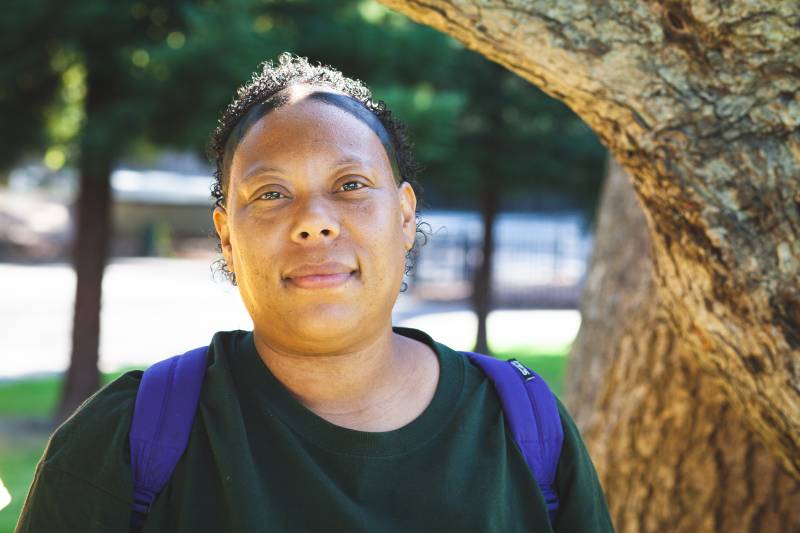Homeless people are among the hardest to count for the U.S. Census Bureau. Now that COVID-19 has restricted normal operations, some Bay Area groups are still working to spread the word while sheltering in place.
San Jose-based nonprofit Downtown Streets Team is trying to ensure Bay Area homeless people get counted this year. The nonprofit had initially planned to canvas encampments and talk to people face to face. But once COVID-19 hit, those plans went out the window. The organization is now relying on their outreach workers, who are often homeless themselves, to spread the word.
Denise Del Rio is one of those volunteers. She became homeless two years ago after losing her mom to lung cancer and her house to a cheating boyfriend. She's 59 years old, has congestive heart failure and pulmonary arterial hypertension, a type of hypertension that affects her lungs and heart.
She now lives in a white van that she parks in Hayward. She keeps her distance and wears a mask while doing outreach work, but it's still scary. "I get frightened, but I pray a lot," she said.
Downtown Streets provides Del Rio with a weekly basic needs stipend for the census work she's doing. She has a network of friends and acquaintances she's been reaching out to, but the census is not an easy sell. It's not that people are worried about the pandemic — Del Rio calls people on the phone and encourages them to use the phone or to fill out the survey online.
